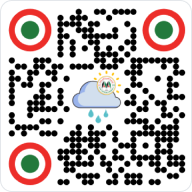Arab American University has signed a strategic partnership agreement with Medical Supplies and Services Company aimed at enhancing medical services provided in the region by supplying devices and developing advanced medical technologies for the University’s prosthetics and Orthotics Factory.
The agreement was signed by the Acting President of the Arab American University, Dr. Bara Asfour, and the CEO of Medical Supplies and Services Company, Mr. Samer Quraitem, with the presence of the Founding Chairman of the University’s Board of Directors, Dr. Yousef Asfour, the Vice President of the University for Medical Faculties Affairs, Prof. Dr. Mohammad Asia, the General Manager of the University Company, Mr. Faleh Abu Arra, the Director of the University’s Prosthetics and Orthotics Factory, Eng. Mustafa Irshaid, the Director of the Supplies and Purchasing Department, Mr. Hassan Rabaya, the Director of the Medical Equipment Department at Medical Supplies and Services Company, Mr. Ahmed Al-Sharif, and the Sales Supervisor, Eng. Mohammad Al-Qadoumi.
According to this agreement, the supplies company will provide the University with an advanced CAD CAM device, which will enable it to manufacture prosthetics and orthotics on demand, making patients’ lives easier. The company will also provide the necessary training and technical support to the University to ensure optimal use of the device.
CAD (Computer Aided Design) technology plays a vital role in the field of prosthetics. Through accurate design, CAD software allows designers to create accurate 3D models of prosthetics, providing a clear vision of what the final product will look like. Through simulation, designers can simulate real-world conditions to test the performance of the prosthetic limb and make necessary adjustments before manufacturing.
The CAM software translates digital designs into manufacturing instructions that machines can understand and implement. The manufacturing process is carried out using the Rodin 4D robot. The use of CAD/CAM in prosthetics enables the design of prosthetics to precisely fit each individual's needs, enhancing comfort and performance, and improving efficiency and accuracy.
The CAD CAM system is used in the field of prosthetics and assistive devices by using patient scanning technology and using specialized computer programs to design the necessary and required adjustments. These digital designs are then translated and sent to the robot that sculpts and shapes the required device or limb.
For his part, the Acting President of the University, Dr. Bara Asfour stressed the importance of this partnership in developing the health sector in Palestine, noting that it will contribute to providing advanced medical services to patients and enhancing the University's position as a center of excellence in the field of health care.
For his part, Mr. Samer Quraitem expressed his happiness with this partnership, stressing the company's commitment to providing the latest medical technologies and high-quality services.
The Arab American University's prosthetics and Orthotics Factory is the first and most modern in the Middle East, as it is equipped with the latest machines, equipment and technologies that meet the needs of the work. The Factory also includes seven departments, meaning there are seven stages for manufacturing the prosthetic limb or assistive device.
The Factory includes an expert medical staff to provide the best medical services in terms of diagnosing patients, prescribing the appropriate device or limb for them and manufacturing it entirely based on medical and technical foundations.
The Factory is concerned with teaching and training students specializing in prosthetics and Orthotics with the best capabilities to graduate students with the classification of a senior specialist with the approval of the Ministry of Education and Higher Education, the Ministry of Health, and the World Prosthetics Organization, where students become able to understand and face the challenges and changing needs in Palestinian and Western society.
The Factory designs and manufactures prosthetics (which are used to compensate for the loss of natural limbs and assistive devices that are used to treat and fix deformities and injuries in the body, whether due to an accident or diseases. The manufacturing process is carried out through several stages such as: diagnosis and taking measurements, shaping and casting, plastic drawing, casting limbs, calibration, installation, training and rehabilitation, where all these stages are under the supervision of highly experienced and qualified specialists. The Factory also keeps pace with developments in this field to improve quality and accuracy in production and make the device or limb more effective and harmonious with the patient's body.












Add new comment